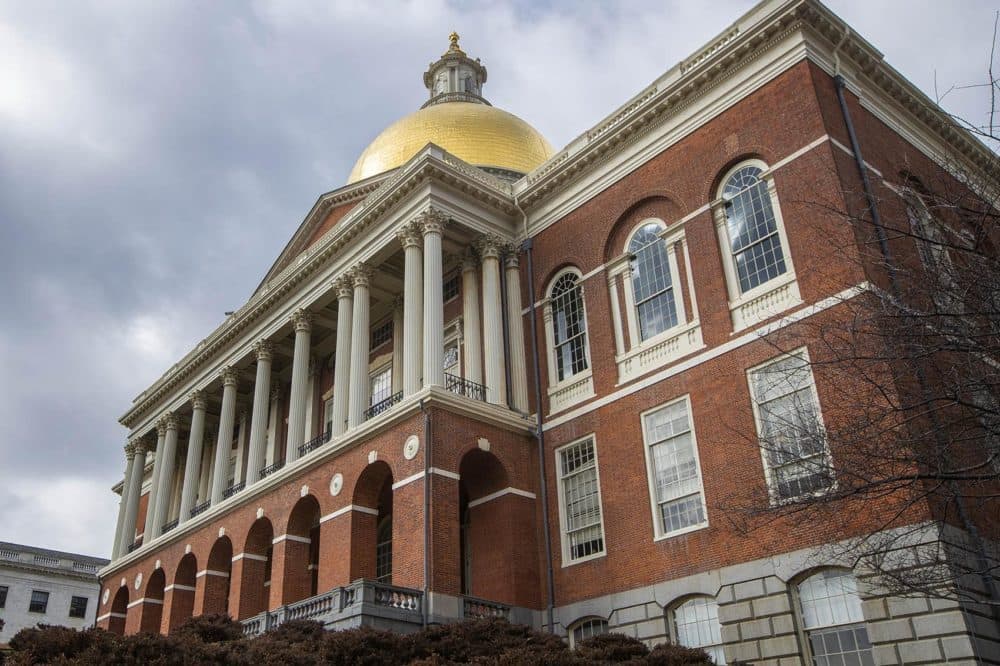Advertisement
Spilka Warned Locals Budget 'May Not Be Pretty'

There are many possibilities for how lawmakers might tackle next year's budget, Senate President Karen Spilka said, but the pandemic's shocks to state revenues may mean the idea of passing one-month budgets while a full spending plan is developed would need to look different than it has in the past.
The economic turmoil created by the COVID-19 crisis began as Beacon Hill's budget season approached — typically, the House passes its budget in April and the Senate in May. The final budget is due by July 1, the first day of the new fiscal year, though lawmakers have often negotiated beyond that deadline and passed "one-twelfth" budgets that allocate enough money for a month of operations, based on the previous year's spending.
With the normal timeline thrown off course and the pandemic's full economic impact not yet quantified, it's still unclear when the Legislature will take up the fiscal 2021 budget or what its bottom line will be.
The set of emergency rules the House adopted this week gave the House Ways and Means Committee until July 1 to report out its version of the budget, and S&P Global Ratings said in a recent bulletin that it expects Massachusetts to adopt a fiscal 2021 budget this summer.
"We need to have some budget in some form by July 1, and there's a lot of different possibilities," Spilka told the News Service Thursday.
"We could do short-term and longer-term. We could break it up," she said. "Generally in the past when we have done a one-twelfth budget for the month of July in the next year, we use the prior year's budget, which I do not believe we can do because the 2020 budget revenue will be bigger than the 2021. Hopefully, we can work very closely with the House and the administration and be on the same page and just really roll up our sleeves and get something done for the Commonwealth."
Tax collections last month fell by more than $2.3 billion compared to April 2019, partially driven by state officials' decision in late March to push the April 15 income tax filing deadline back three months. Economic experts who testified at a recent hearing projected that next year's tax collections could land $4 billion to $6 billion below initial estimates.
The lack of clarity around a state budget plan creates uncertainty for anyone who relies on spending in the more than $43 billion budget and means local aid levels, a major source of revenue for municipal government, remain unknown for the municipal officials who usually craft their city and town budgets in the spring.
Spilka, who in the past has served as chairwoman of the Senate Ways and Means Committee and as an Ashland School Committee member, said she spoke to the Natick and Ashland school committees and select boards in her district this week. She said she's "been very honest with them in saying that it may not be pretty, but this is the situation we're in" and sharing economic projections.
"I have shared with them that, especially coming from a municipal school committee background, I understand that cities and towns need to plan their budget, they need to set their tax rates, they need something definite at some point in the near future, and we are sensitive to that," she said. "The Ways and Means chairs and secretary of [Administration and Finance] are working on this."
Last month, the Legislature passed and Gov. Charlie Baker signed a bill that eases some of the deadlines and scheduling requirements municipalities face and allows cities and towns to tap into their free cash, or remaining fiscal 2020 reserves, for fiscal 2021 budgets without having to go through the usual state approval process.
The Senate on Monday passed another bill (S 2680) intended to give municipal governments added flexibility, and Spilka said it primarily addresses town meetings and vendor services.
"Hopefully that will go through soon because there's lots of towns that want to hold a town meeting with a reduced quorum or figure out how to hold it virtually," she said.